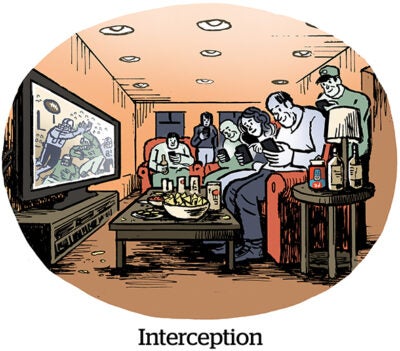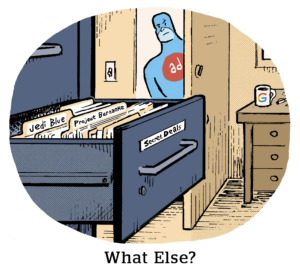Here’s today’s AdExchanger.com news round-up… Want it by email? Sign up here.
Death By A Thousand Subscriptions
News subscriptions. OK. Entertainment subscriptions, sure. Gaming subscriptions … I can see it.
But subscriptions have now taken over the economy.
This year, Sweetgreen and Taco Bell started testing subscription offers, and Alaska Airlines also began testing a subscription package with guaranteed flight rates.
A new running shoe brand pitches subscriptions as a better way for legit runners to maintain their shoes.
BMW quietly changed its pricing structure in some markets where it’s selling heated seats as an $18-per-month subscription, rather than bundled into the price, The Verge reports. Part of the reason Tesla has an outsized valuation compared with automakers that sell more cars at a higher profit is that Tesla has a subscription software model – its features and upgrade options come as monthly price bumps.
Although subscriptions do provide brands with a data collection edge – for example, QSRs and consumer brands can use a small app-based membership program as a seed set to do lookalike modeling – the trend toward subs on top of subs is mainly being driven by investors, who are head-over-heels in love with subscriptions right now.
Buyer beware, however. Meal-kit services, fashion boxes and grooming-product brands like Dollar Shave Club and Harry’s were early subscription standouts … until those categories all sizzled out.
Turn Down For What?
Obnoxiously loud streaming ads aren’t just annoying – they may actually be illegal.
Back in 2012, the Federal Communications Commission (FCC) signed the Commercial Advertisement Loudness Mitigation Act (CALM … get it?) into law. It requires ads to run at the same average volume as surrounding content. Viewers who notice “egregiously loud commercials” are encouraged to report violations to the FCC, Morning Brew reports.
But let’s be real: A piercingly loud Paramount Plus ad will probably make viewers attack the volume-down button rather than dial up the FCC. And “the FCC has never enforced the law,” US Rep. Anna Eshoo, a co-author of the CALM Act, wrote last year.
Despite speculation that advertisers deliberately crank the volume to prevent viewers from dropping out, it’s more likely that the problem stems from the technology that processes ad volume, which is separate from the rest of an ad’s metadata. (Ads come prepackaged with linear TV channels, so there isn’t the same glitch).
Either way, overly loud ads are a problem, and the amount of loud ad complaints are actually increasing, according to Insider. If programmers start losing viewers, maybe they’ll finally take action.
Take It To The PMax
Google has some new updates for Performance Max.
PMax is “the newest Google Ads campaign type with the most channel and inventory coverage,” writes Tal Akabas, a Google group product manager, in a Support page post.
But advertisers are frustrated with PMax because – even by Google standards – it’s an enigma in a black box. For example, unlike channel-specific YouTube campaigns, shopping campaigns and programmatic video campaigns, PMax campaigns cannot be disentangled to, for example, understand specifically how YouTube compares with online video. The reporting comes back as an aggregated whole.
The updates attempt to bring ease and transparency to PMax campaigns. One new tool is the optimization score, a 0 to 100 rating with built-in recommendations. Google will also roll out “explanations” to all PMax accounts, which pop up to inform advertisers why certain KPIs may seem off, like a “Campaign still learning” alert or a notice about fluctuation in auction competition.
Advertisers will also be able to exclude certain times from their optimization engine. If a merchant’s site was down (or, say, the Google or Facebook ad system went haywire for a few hours), the advertiser could nullify those time frames so they don’t mess with the overall reporting.
But Wait, There’s More!
The FTC reiterates its stance on location, health and other sensitive information. (It’s “committed to fully enforcing the law against illegal use and sharing of highly sensitive data.”) [blog]
Facebook faces a reckoning as advertisers slash spending and abandon the platform for the first time. [Insider]
The Big Ten blame game: How TV rights deals reshaped college sports. [Stratechery]
Ecommerce platform OSF Digital acquires Aarin, a Salesforce Marketing Cloud systems integrator. [release]
How Amazon is tracking you on Prime Day. [Gizmodo]
You’re Hired!
Instacart promotes Laura Jones to CMO and expands its leadership team. [release]
TV measurement company 605 brings on Sam Abiad as EVP and head of sales. [release]














